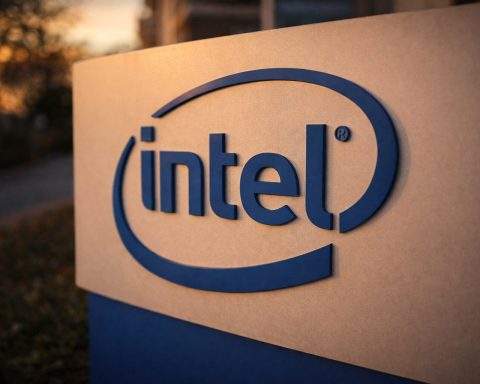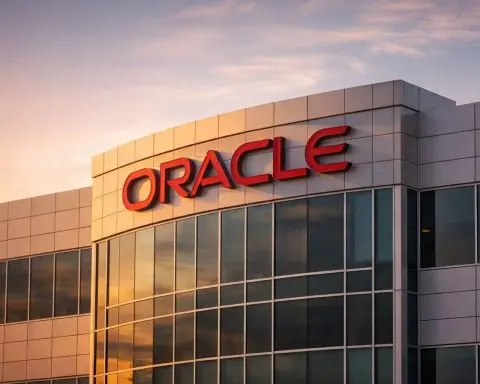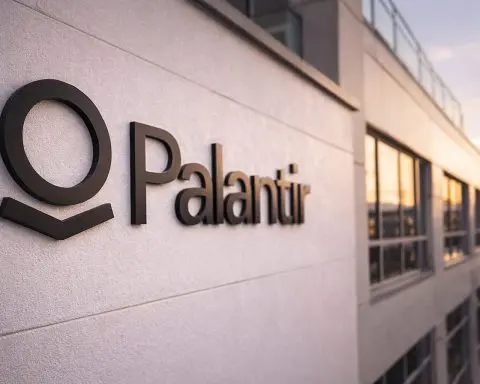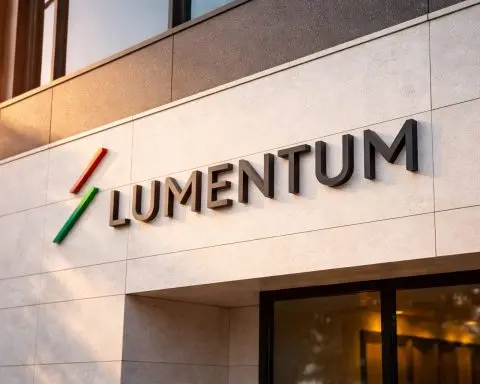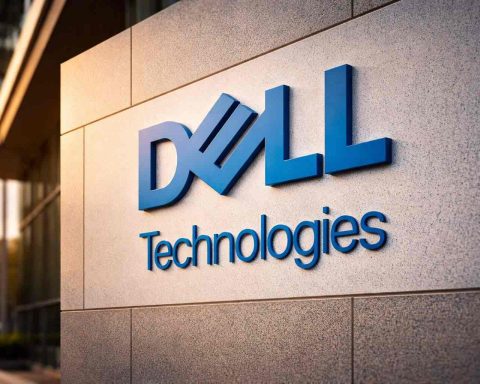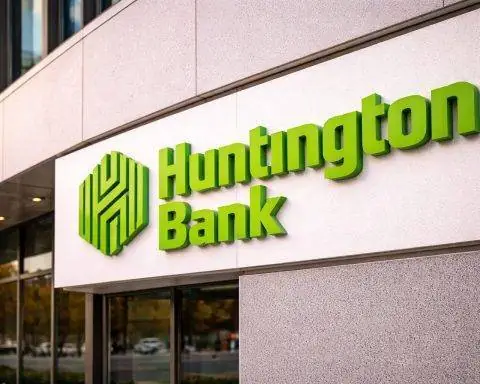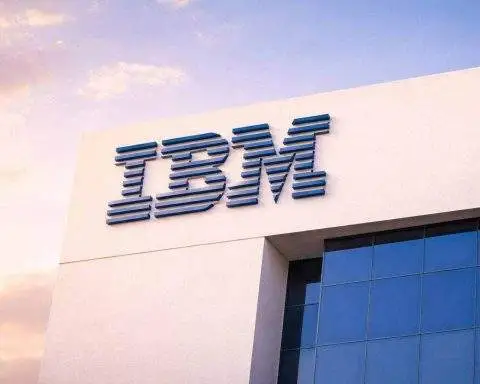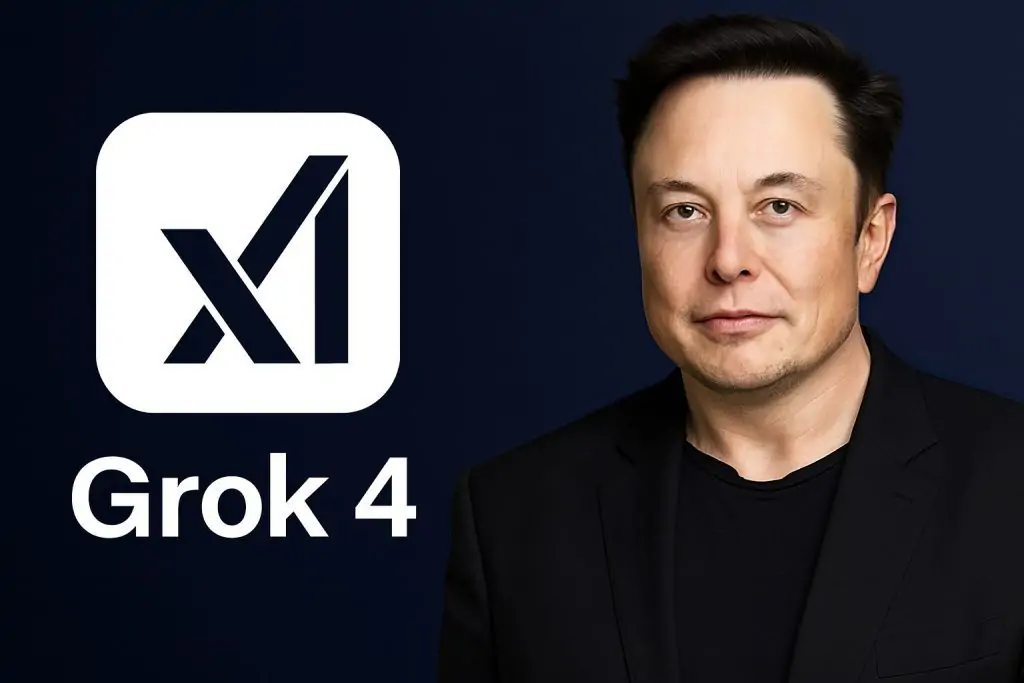- June 17–18, 2025, the Confidential Computing Summit featured OPAQUE Systems unveiling Confidential Agents, a platform that runs AI agents inside TEEs for secure RAG workflows with encrypted data, policy enforcement, and auditability.
- On the same dates, OPAQUE joined the AGNTCY open‑source consortium led by Cisco’s Outshift and LangChain to build a trust infrastructure for the Internet of Agents.
- In June 2025, Anjuna Security added a top‑5 global bank to its clientele, with three of the world’s 10 largest banks using its Seaglass enclaves and Northstar clean‑room across AWS, Azure, Google Cloud and on‑prem.
- June 30, 2025 saw Keyring Network with Euler Finance, Multipli, and Pyth Network launch the first zkVerified DeFi markets on Avalanche, using ZK proofs and MPC to verify identities and compliance without revealing data.
- July 2, 2025 announced Solidus AI Tech and Secret Network’s strategic partnership to bring confidential computing to Solidus’s decentralized AI platform, including integration of SecretAI for encrypted inference and exploration of SecretVM enclave‑backed smart contracts.
- NIST is pursuing end‑2025 standardization of zero‑knowledge proofs via its Privacy‑Enhancing Cryptography program, issuing an open Threshold Call for ZKP schemes to enable interoperable standards.
- The SmallWood protocol, a hash‑based polynomial commitment and ZK argument scheme, is optimized for small circuits and achieves proof sizes under 25 KB for certain problems.
- Google Wallet began using zero‑knowledge proofs for private age verification in late June 2025, enabling unlinkable proofs while drawing privacy skepticism from some analysts.
- The U.S. Navy is an early adopter of confidential cloud technology through Anjuna’s enclave platform, signaling defense‑level interest in confidential computing.
- Market outlook in mid‑2025 projects confidential computing growing from roughly $13–15 billion in 2024 to around $300+ billion within the next decade, with a $350 billion forecast by 2032, alongside ecosystem moves like AGNTCY and the Confidential Computing Consortium.
Key News Stories & Technological Advancements
Major Tech Announcements: June 2025 saw significant product launches and partnerships in zero-knowledge and confidential computing. At the Confidential Computing Summit (June 17–18), OPAQUE Systems unveiled Confidential Agents – a new platform that runs AI agents within trusted execution environments (TEEs) for secure RAG (retrieval-augmented generation) workflows aijourn.com aijourn.com. Unlike traditional AI agents, these run entirely on encrypted data inside hardware enclaves, with built-in policy enforcement and auditability. “OPAQUE is accelerating innovation by merging powerful AI agent technologies with robust, verifiable guarantees for sensitive data… enabling agility, security, and trust at scale,” said Harrison Chase, CEO of LangChain aijourn.com. On the same day, OPAQUE also joined AGNTCY – an open-source collective led by Cisco’s Outshift, LangChain, and others – to help build a “trust infrastructure for the Internet of Agents,” addressing privacy and verification as autonomous AI systems scale across organizations aijourn.com aijourn.com. This reflects a broader trend of confidential computing converging with AI to secure enterprise workflows.
Leading confidential computing startup Anjuna Security made headlines by adding a top-5 global bank to its clientele in June, meaning three of the world’s 10 largest banks now use its enclave platform businesswire.com. Anjuna’s CEO Ayal Yogev hailed this as proof that confidential computing “is becoming the new foundation for secure digital finance” businesswire.com. These banks use Anjuna’s platform (Seaglass enclaves and Northstar clean-room) to securely analyze sensitive data (fraud detection, cross-border analytics, etc.) across AWS, Azure, Google Cloud and on-prem environments businesswire.com businesswire.com. Such deployments underscore a “fundamental shift” in financial services towards processing high-value data with zero compromise by keeping it encrypted even during use businesswire.com. Notably, Anjuna also counts U.S. Navy and next-gen payment providers among its customers businesswire.com, signaling adoption in both government and fintech sectors.
In the blockchain arena, zero-knowledge proof technology continued advancing the state-of-the-art. On June 30, Keyring Network and several DeFi protocols (Euler Finance, Multipli, Pyth Network) announced the launch of the first “zkVerified” DeFi markets on Avalanche cointelegraph.com. These lending pools use ZK-proofs and MPC (multi-party computation) to cryptographically verify user identities and compliance without revealing any personal data cointelegraph.com. The goal is to solve “DeFi’s biggest problem: how institutions can verify counterparties without killing privacy,” enabling institutional capital to participate in crypto lending under privacy-preserving KYC cointelegraph.com cointelegraph.com. In these zkVerified pools, users prove they are KYC-verified (e.g. via Binance or bank accounts) by presenting zero-knowledge credentials, so lenders know borrowers are legitimate “without knowing who they are” cointelegraph.com cointelegraph.com. This innovation is described as DeFi’s evolution toward institutional-grade privacy – meeting compliance standards while preserving decentralization cointelegraph.com cointelegraph.com. It reflects a broader push in crypto to integrate ZKPs for on-chain identity, as also seen with companies like Polygon, zkSync, and others scaling Ethereum via zk-rollups.
Early July 2025 brought more cross-industry collaboration. On July 2, Solidus AI Tech (an AI infrastructure startup) and Secret Network (a blockchain with TEE-based private smart contracts) announced a strategic partnership to bring confidential computing to Solidus’s decentralized AI platform prnewswire.com. Solidus integrated Secret Network’s SecretAI model (a privacy-preserving LLM) for encrypted AI inference, and the teams are exploring using Secret Network’s SecretVM (enclave-backed smart contracts) so developers can deploy AI agents in confidential, verifiable environments prnewswire.com prnewswire.com. “Confidential computing is an important layer for developers and users alike, and we’re excited to work with Secret Network to provide the tools people need,” said Solidus’s John Mendez prnewswire.com. The Secret Network Foundation’s director, Lisa Loud, added that “by working with Solidus AI Tech, we’re making confidential computing more accessible to developers who are building the next generation of intelligent systems” prnewswire.com. This highlights emerging use-cases at the intersection of blockchain, AI, and confidential computing – enabling AI models to run with privacy guarantees on decentralized infrastructure.
Tech Standardization and R&D: On the standards front, the U.S. National Institute of Standards and Technology (NIST) is driving a major effort to standardize zero-knowledge proofs by the end of 2025 cryptoslate.com. As part of its Privacy-Enhancing Cryptography program, NIST has an open “Threshold Call” for researchers to submit ZKP schemes, aiming to develop interoperable, secure standards that can be widely adopted cryptoslate.com cryptoslate.com. This anticipated 2025 ZKP standard is expected to “usher in a new era for web3 and beyond,” preventing a fragmented patchwork of protocols as ZKP usage skyrockets cryptoslate.com cryptoslate.com. In academic research, interest in post-quantum and more efficient ZK proofs is high. A mid-June report from the International Association for Cryptologic Research highlighted “hash-based ZKPs…promising due to their conjectured resistance to quantum attacks” iacr.org. For example, researchers introduced SmallWood, a new hash-based polynomial commitment and zero-knowledge argument scheme optimized for small circuits, achieving record-small proof sizes (under 25 KB) for certain cryptographic problems iacr.org iacr.org. Such advances show the cryptography community pushing ZKP performance and security, anticipating future needs (e.g. lattice-based and hash-based proofs to resist quantum adversaries). Overall, June–July 2025 has been a breakout period for ZKP and confidential computing technologies, with real-world deployments, enhanced tools, and collaborative initiatives accelerating these once-niche privacy tech into the mainstream.
Expert Commentary & Analysis from Industry Leaders
Leading voices in the industry have provided insightful commentary on these developments. Many experts underline that we are at an inflection point where privacy-preserving tech is becoming practical for business at scale. “Securing another top-tier global bank is further proof that Confidential Computing is becoming the new foundation for secure digital finance,” said Ayal Yogev, Anjuna’s CEO, noting that banks now see enclaves as essential to safely leverage AI and analytics on sensitive data businesswire.com. In the AI domain, Erik Severinghaus (Co-CEO of Bloomfilter) highlighted the value of confidential AI agents, stating that “OPAQUE enables us to build AI-native systems where data confidentiality isn’t an afterthought — it’s foundational… It’s the rare case where security and velocity reinforce each other.” aijourn.com This sentiment, shared at the Confidential Computing Summit, captures a growing confidence that security can enhance innovation rather than impede it.
Harrison Chase, CEO of LangChain (a popular AI framework), similarly praised the blend of ZK and AI tech: “As enterprises increasingly orchestrate agentic workflows… OPAQUE raises the bar – enabling agility, security, and trust at scale.” aijourn.com His comment reflects the excitement around confidential AI: organizations can now deploy autonomous AI agents on private data with cryptographic assurances, potentially unlocking new business value in a trustworthy way. Cisco’s Outshift group, which co-founded the AGNTCY consortium, also weighed in on the need for verifiable trust. “Before multi-agent software can truly become embedded in critical processes, we need verifiable privacy, data sovereignty, integrity, and runtime guarantees… that’s why we’re welcoming OPAQUE,” said Vijoy Pandey, Cisco SVP aijourn.com. Such expert views underscore that privacy-by-design is becoming a core requirement for next-gen AI and software systems.
In the blockchain space, industry observers note that zero-knowledge proofs are transitioning from theoretical breakthroughs to practical infrastructure. A mid-2025 tech trends report noted that “Zero-knowledge proofs are one hot area: ZK-tech is being applied for privacy solutions and to scale throughput”, citing ZK-rollups as a way to vastly increase transaction speed on Ethereum by bundling transactions and posting minimal data on-chain ts2.tech. Rob Viglione, CEO of Horizen Labs, wrote that formal standards and interoperability will be crucial here – comparing ZKP standards to the role of HTTP in enabling the web – so that businesses can trust and adopt these tools widely cryptoslate.com cryptoslate.com. “Standards are the unsung heroes… the emergence of standards for ZKPs promises to usher in a new era for web3 and beyond,” he argued cryptoslate.com cryptoslate.com.
Perhaps the most high-profile endorsement of ZK tech this period came from Google’s foray into the space. In late June, digital identity experts applauded Google’s move to integrate ZKPs for private age verification in Google Wallet. “Users can now prove they meet age requirements without a way to link the age back to your identity” – achieving “unlinkability” – noted Jim Hartsema, a digital ID authority, calling it “a big leap forward for digital identity and privacy-preserving tech.” biometricupdate.com Industry analysts see Google’s adoption as a validation of ZKPs’ maturity: a blocmates news analysis pointed out that ZKPs, “widely viewed as one of the most promising innovations in cryptography,” had until now been confined to crypto niches, but by embedding them into Google Wallet, the tech giant is mainstreaming a blockchain solution in a way users don’t even notice blocmates.com blocmates.com. This could familiarize millions with zero-knowledge methods and spur broader acceptance of privacy tech across industries. Still, some experts urge caution: “Let’s wait to see the technical and legal implementation,” one commentator said regarding Google’s ZKP IDs, raising questions about how much Google itself might track even in a privacy-focused system biometricupdate.com. The overall expert consensus, however, is optimistic – seeing mid-2025 as the point where zero-knowledge proofs and confidential computing leapt from research labs into real products solving pressing problems in identity, finance, and AI.
Emerging Applications Across Sectors
Enterprise & Finance: In the enterprise sector, confidential computing is emerging as a key strategy for data collaboration and cloud security, especially in finance. The fact that multiple major global banks are deploying TEEs (trusted enclaves) to protect sensitive workflows is a landmark businesswire.com businesswire.com. These banks use confidential computing to analyze fraud patterns, conduct inter-bank data sharing, and run AI models on private financial data – all while keeping the data encrypted in memory. This “end-to-end protection during processing” means even if infrastructure is compromised, the data remains safe businesswire.com. Financial institutions are among the most compliance-bound organizations, so their adoption signals that the technology has reached a level of robustness and performance suitable for mission-critical use. Payment companies and credit card networks are also experimenting with enclaves to enable secure analytics on transaction data across partners businesswire.com. Beyond finance, enterprises in healthcare and SaaS are evaluating confidential computing to unlock insights from sensitive datasets (like patient or user data) without breaching privacy businesswire.com. Zero-knowledge proofs are likewise finding enterprise use in identity and access management – for instance, verifying a user’s attributes or rights without exposing underlying data (e.g. proving an employee has clearance without revealing their entire ID). Google’s integration of ZKPs to verify age for apps like dating services is one example of a consumer-facing enterprise (Big Tech) using ZK proofs to meet regulatory demands while respecting user privacy biometricupdate.com. This approach can extend to e-commerce age checks, content access controls, and more. As one analysis put it, by integrating ZKPs into a mainstream product like Wallet, Google is bridging Web2 and Web3, showcasing a real enterprise-grade application of zero-knowledge tech that could inspire others in industry blocmates.com blocmates.com.
Blockchain & Crypto: The crypto sector has been a hotbed for zero-knowledge innovation, and that continued in June–July 2025 with efforts to make decentralized finance more private and compliant. The launch of zkVerified markets on Avalanche is a prime example – using ZK-proofs plus MPC to perform KYC/AML checks for DeFi lenders and traders without revealing identities cointelegraph.com cointelegraph.com. This allows institutional investors to participate in DeFi under the reassurance that all counterparties are verified (reducing risk and fraud) while still “preserving privacy and decentralization” for users cointelegraph.com cointelegraph.com. It’s effectively creating permissioned, privacy-preserving pools alongside open pools – an approach likely to grow as regulators call for stronger oversight of crypto markets. Meanwhile, zero-knowledge rollups and zkEVMs continue to mature on Ethereum and other chains, greatly improving scalability. By mid-2025, Layer-2 networks leveraging zkSNARKs (Polygon zkEVM, zkSync, StarkNet, etc.) handle a large volume of transactions at a fraction of mainnet cost, bundling thousands of transfers into succinct proofs ts2.tech ts2.tech. These ZK-rollups not only boost throughput (Ethereum’s TPS has jumped via rollups) but also open the door to private transactions and data minimization on-chain, since proofs can validate state changes without publishing all details. Privacy-focused blockchain projects are also using TEEs and ZKPs in tandem – e.g. Secret Network’s use of TEEs to run smart contracts privately, now combined with ZK techniques for verifying outcomes. The Solidus–Secret partnership hints at “confidential AI” in Web3: imagine decentralized AI agents that use on-chain confidential enclaves to process sensitive inputs (like personal data or proprietary models) with verifiable privacy prnewswire.com prnewswire.com. Additionally, crypto identity projects are employing ZKPs for decentralized ID (DID) systems – for instance, proving one holds a government ID or credential without disclosing it. The Aztec Network’s recent research report argues that such ZK-based age and ID proofs could be a solution to compliance requirements across gaming, social media, and even voting, without the privacy pitfalls of centralized ID checks biometricupdate.com biometricupdate.com. In summary, blockchain applications of ZKPs are expanding from purely financial uses to encompass identity and computation, while confidential computing is providing new tools to secure the underlying infrastructure of Web3.
Academic Research & Innovation: In academia and advanced R&D, zero-knowledge and confidential tech are fertile areas bridging theory and practice. Researchers are pushing the boundaries of efficiency – for example, improving proof sizes and generation times for ZKPs to make them more practical. The SmallWood protocol mentioned earlier is notable for using hash-based commitments (post-quantum secure) while keeping proofs under 25 KB for certain sizes, outperforming prior approaches iacr.org. Such work is crucial for future-proofing ZKPs against quantum computers, ensuring that even in a post-quantum era, ZKP-based systems (from blockchain to ID) remain secure. We also see cross-pollination between fields: cryptographers are exploring ZK proofs for machine learning model verification (proving an AI model inference was done correctly without revealing the model or data) and for secure multi-party computation (like advanced forms of MPC-in-the-head protocols). In June, one paper presented at a cryptography conference refined a Threshold Computation in the Head technique, indicating active research in combining ZK with distributed computation iacr.org. In the confidential computing arena, academics are addressing known gaps such as side-channel vulnerabilities. A recent comparative study from late 2023 (whose findings resonated into 2025 discussions) showed that side-channel attacks remain effective on TEEs, and proposed “oblivious” programming techniques to mitigate these leakages arxiv.org arxiv.org. This has inspired research into tools and compilers that automatically strip side-channel signals or into hybrid approaches combining TEEs with cryptographic methods. University labs and industry research arms (Microsoft Research, IBM, etc.) are also developing formal verification methods for enclave code and exploring new hardware designs for confidential computing beyond today’s SGX/TDX and AMD SEV. Overall, academic research is laying the groundwork for the next generation of ZK and confidential tech – aiming to make proofs smaller, protocols faster, and hardware enclaves more secure, which in turn will expand the real-world applications over the coming years.
Government & Defense: Governments and defense agencies in mid-2025 are increasingly interested in privacy-preserving tech both for policy and operational uses. On the policy side, regulators are recognizing that technologies like ZKPs can reconcile data privacy with legal compliance. Notably, France’s data regulator CNIL recently acknowledged zero-knowledge age verification as a “privacy-friendly model” for online age checks, endorsing it as an alternative to outright bans or intrusive ID uploads for adult websites biometricupdate.com. This comes as many jurisdictions (UK, EU, US states) grapple with age verification laws – and ZK proofs offer a solution that “enables robust identity verification while safeguarding personal information,” as the Aztec report to policymakers put it biometricupdate.com. In the United States, NIST’s push to standardize ZKPs by year-end (mentioned above) exemplifies government’s proactive stance to incorporate advanced cryptography into future digital infrastructure cryptoslate.com. Such standards could benefit federal agencies, for example in secure identity credentials or census/privacy-preserving data sharing. Meanwhile, defense and national security circles are exploring confidential computing to protect sensitive data and algorithms. The fact that the U.S. Navy is already an early adopter of confidential cloud technology (via Anjuna’s platform) shows concrete interest in isolating and securing defense workloads businesswire.com. DARPA, the Pentagon’s research arm, has in recent years run programs using ZK proofs – for instance, to allow security researchers to prove a software vulnerability exists without revealing the exploit details (so that vendors can be alerted without arming adversaries). That concept, trialed in programs like SIEVE, leverages the core ZKP ability to prove a statement true with zero extra knowledge. While those specific DARPA experiments occurred earlier, in 2025 the military continues to invest in cyber resilience tools and “innovative encryption solutions” for the battlefield and beyond linuxfoundation.org news.usni.org. Confidential computing is poised to play a role in defense cloud programs by ensuring that even if adversaries intercept or access systems, they cannot see the data or code running within. Governments are also funding research on privacy-enhancing technologies (PETs) including ZKPs to enable data sharing between agencies or allied countries without exposing underlying sensitive information. In summary, the public sector’s stance in mid-2025 is evolving from skepticism to cautiously embracing these technologies: regulators see them as potential compliance tools, and defense sees them as a way to secure critical systems – albeit with a keen eye on the remaining challenges like reliability, standards, and potential misuse by bad actors.
Market Trends, Investments & Startups
The market outlook for zero-knowledge and confidential computing is extremely bullish as of mid-2025, with analysts forecasting exponential growth and investors pouring capital into startups. Recent market research reports project that the global confidential computing market will soar from roughly $13–15 billion in 2024 to on the order of $300+ billion within the next decade fortunebusinessinsights.com fortunebusinessinsights.com. One analysis pegs it at $350 billion by 2032, implying a staggering ~46% compound annual growth rate fortunebusinessinsights.com fortunebusinessinsights.com. These projections reflect expectations that as data privacy regulations tighten and cloud adoption grows, organizations will widely deploy TEEs, secure enclaves, and allied cryptographic solutions to protect data in use. Industry surveys also indicate rising awareness; for example, over half of large enterprises are evaluating confidential computing solutions by 2025, compared to only niche trials a few years ago (as evidenced by the big-name “design wins” in banking, tech, and government).
Venture capital and corporate investment trends in June–July 2025 reinforce this optimism. According to Cointelegraph and AInvest data, blockchain and Web3 startups raised $1.15 billion in June 2025 alone across 140 deals – a slight uptick from May, signaling renewed investor confidence ainvest.com ainvest.com. Within that, zero-knowledge and privacy projects were standout targets. For instance, Eigen Labs, which develops zero-knowledge tooling for Ethereum (e.g. EigenLayer and data availability solutions), secured a $70 million funding round led by a16z Crypto ainvest.com. Investors explicitly cited the growing demand for privacy and scalability tech in backing Eigen Labs ainvest.com. Similarly, Zama, a startup focused on fully homomorphic encryption (a related PET technology), closed a $57 million Series B at a unicorn valuation, underscoring appetite for privacy-preserving computation companies ainvest.com. New startups are emerging at the intersection of AI and confidential computing as well – OPAQUE Systems itself is a young company (spun out of UC Berkeley in 2021) that has attracted major investors and clients by addressing the need for “Confidential AI” platforms aijourn.com. We also see traditional cybersecurity vendors expanding into this space (for example, Fortanix and Edgeless Systems continuing to grow) and cloud providers offering Confidential-Cloud services (Azure, AWS, Google Cloud all now have confidential VM offerings).
Strategic alliances and consortiums are another marker of market maturation. The formation of AGNTCY, bringing together players like Cisco, LangChain, Galileo, and Opaque, suggests a push toward open standards and protocols for agent workflows that require trust and privacy aijourn.com aijourn.com. Likewise, the Confidential Computing Consortium (under the Linux Foundation) reported increased membership and contributions in mid-2025, with firms collaborating on common TEE standards and APIs confidentialcomputing.io confidentialcomputing.io. This cooperative ecosystem can reassure enterprise buyers and accelerate adoption.
Analysts note a few key trends in investment: many deals now are “hybrid” financing – equity + tokens, especially for Web3 projects working on ZK-rollups or identity, as investors want a stake in both the company and its network. Also, corporate venture arms (of banks, cloud providers, defense contractors) are more active, recognizing the strategic importance of data-protection tech. For example, the new bank customer that Anjuna landed might also involve an investment or large contract, boosting Anjuna’s credibility and possibly leading into an IPO down the line. Market research from Forbes and others signals that confidential computing is seen as a potential answer to costly data breaches and cloud trust issues. “Hardware Vulnerabilities [remain a concern]: secure enclaves rely on hardware integrity, meaning threats like side-channel attacks could compromise data,” one Forbes analysis cautioned forbes.com. But the same piece argued that confidential computing, alongside Zero Trust architectures, could significantly reduce SaaS data breaches by isolating customer data from even cloud admins forbes.com. This value proposition – cutting down breach risk and compliance exposure – is driving interest from Fortune 500 companies, which in turn attracts more funding to the sector.
Even startups beyond pure-play security are leveraging ZKPs: for example, identity tech firms and RegTech startups are using ZK proofs for compliance solutions (age checks, credit checks) and seeing strong demand from regulated industries and government contracts. The broader crypto market recovery in mid-2025 (with crypto market cap rebounding ~45% by July according to some reports ainvest.com) also lifts ZK projects, since many scalability and privacy improvements are critical to crypto’s next growth phase. All told, the investment community views zero-knowledge and confidential computing not as speculative bets but as foundational tech with “explosive growth” potential businesswire.com. The infusion of capital and the lofty market forecasts suggest we will see a wave of new products and possibly consolidations (M&A) in this space over the next year, as firms race to capture the burgeoning demand for privacy-enhancing technologies.
Controversies, Security Concerns & Critical Opinions
Despite the exciting progress, June–July 2025 has also highlighted some controversies and challenges that surround zero-knowledge and confidential computing technologies. A prominent discussion has been around Big Tech’s use of ZKPs and whether it truly benefits user privacy. Google’s adoption of ZK proofs for age verification, while lauded by many, drew some skepticism in privacy circles. Commenters noted Google’s track record in data collection, warning that “Google has long been regarded as the ‘KING’ of data collection… let’s see if they will not track your activity when using ZKP” biometricupdate.com. In other words, even if the age-check itself is private, users are concerned that Google could still log the event or tie it to their profiles. This reflects a broader trust issue: people tend to be wary that large centralized entities might implement privacy tech in name but still find ways to harvest data. Google did open-source some of its ZKP code and emphasized that the system uses a “Digital Credential” that doesn’t reveal personal info blocmates.com. However, critics argue that regulatory oversight is needed to ensure companies don’t compromise privacy elsewhere around these systems. This debate – tech solution vs. legal safeguards – was also echoed in the Aztec report, which argued that the answer to age assurance lies in “novel technological solutions” rather than “passing laws that curtail civil liberties” biometricupdate.com. It’s a delicate controversy: privacy advocates champion ZKPs as a way to comply with laws without mass data retention, while some regulators still question if they can trust a “black box” cryptographic approach or if they’d prefer traditional oversight. The coming months may see more scrutiny on how effectively companies like Google implement ZKP-based IDs and whether any loopholes or misuse arise.
Another area of concern is the security of confidential computing hardware itself. While TEEs significantly raise the bar for attackers, researchers consistently find side-channel leaks and other vulnerabilities in implementations. In June, security analysts reminded that relying solely on enclaves requires caution: recent studies have shown that side-channel attacks are still effective on TEEs arxiv.org. For instance, techniques like CPU cache probing, speculative execution exploits (à la Spectre/Meltdown), or power analysis could potentially extract secrets from an enclave if not properly mitigated. There were no headline-grabbing new TEE exploits published in June–July, but the community is well aware of past incidents (e.g. VoltPillager, Plundervolt attacks on Intel SGX in prior years). This has led to some critical opinions: a piece in Cyber Defense Magazine urged that “side-channel attacks – though often shown in labs – are a real risk in cloud environments”, stressing the need for hardened enclave designs and complementary measures (constant-time code, noise injection, etc.) forbes.com cacm.acm.org. Critics sometimes contrast “confidential computing” vs “cryptographic computing” (like multi-party computation and homomorphic encryption) – the latter doesn’t rely on trusted hardware and so isn’t vulnerable to hardware flaws, but it can be orders of magnitude slower. For now, many experts advocate a defense-in-depth: use TEEs but also use good opsec (patching, attestation checks) and, where ultra-high security is needed, layer with cryptographic techniques to mask access patterns. The confidential computing industry is responding; for example, Microsoft and others have introduced dynamic microcode patches and TEE attestation services to rapidly respond to any new vuln fortunebusinessinsights.com fortunebusinessinsights.com. Nonetheless, the debate continues over whether current generation TEEs are sufficiently secure. Open-source enclave projects (like Keystone) and new silicon (e.g. RISC-V with built-in secure enclaves) are in development to address some of these trust issues (including transparency of enclave implementations).
There’s also a philosophical controversy regarding privacy vs. law enforcement that came to light around these technologies. As encryption and ZK-proofs proliferate, some law enforcement agencies quietly voice concern that “going dark” problems will worsen – e.g. if financial transactions or communications are shielded by zero-knowledge proofs, it could be harder to detect illicit activity. In the EU and US, this hasn’t yet materialized into major legislative fights in 2025 (those have focused more on end-to-end messaging encryption or crypto assets generally). But one can foresee questions being raised: if, for example, a suspect proves some attribute with a ZKP, can investigators subpoena any underlying data at all? Governments will need to adapt techniques (perhaps using “zero-knowledge contingent proofs” or warrant-friendly escrow in certain designs). During this period, no explicit new anti-ZKP stance was taken by authorities, but it’s an undercurrent to monitor – especially as zero-knowledge ID and currency systems become more common.
Finally, a critical view from within the tech community is the complexity barrier of ZKPs. Developers often find ZKP systems hard to implement and expensive to run (in terms of computation). As one report noted, until now ZKP adoption was “largely confined to niche circles” due to these challenges blocmates.com. While tools and libraries (like SnarkJS, zkSync’s toolkit, etc.) are improving, there’s still a shortage of skilled engineers, and mistakes in circuits or protocols could undermine security. Some skeptics question if the performance of ZKP-based solutions can scale for mass consumer use – for example, can a ZKP system handle billions of daily verifications quickly? The early Google Wallet rollout will be a test case, as will any large-scale DeFi KYC solution. As of mid-2025, these concerns remain somewhat theoretical, since pilot deployments are targeted and usage volumes manageable. But it’s clear that education and simplification of zero-knowledge tech is needed. Initiatives like the ZKProof standards and community references (which NIST and others are developing) aim to demystify ZKPs and provide clear guidelines cryptoslate.com cryptoslate.com. The hope is that by establishing common terminology, proving system standards, and best practices, the risk of misimplementation will drop and more developers will feel confident using ZKP libraries.
In summary, the June–July 2025 period for zero-knowledge proofs and confidential computing has been one of dynamic growth coupled with healthy debate. We’ve witnessed major leaps in real-world adoption – from banks and Big Tech to blockchain startups – alongside a chorus of expert enthusiasm about the potential to transform privacy and security in the digital world. At the same time, voices of caution ensure we remember that no technology is a silver bullet: trust must be continually earned, systems rigorously vetted, and ethical implications considered. As these technologies move from the fringes to center stage, the conversations around them – both celebratory and critical – will only intensify. The remaining months of 2025 will tell how standards solidify and pilot projects scale, but it’s evident that zero-knowledge and confidential computing have arrived as key pillars of the emerging tech landscape, driving us toward a future where data can be used to its fullest value without sacrificing privacy or security.
Sources:
- Official press releases and newswires (Anjuna, Opaque Systems, Secret Network) businesswire.com aijourn.com prnewswire.com
- Tech industry analyses and summit highlights ts2.tech aijourn.com
- Expert commentary from executives (Cisco, Anjuna, LangChain) businesswire.com aijourn.com
- Crypto news outlets and press releases (Cointelegraph, CryptoSlate) cointelegraph.com cryptoslate.com
- Academic and regulatory reports (Aztec Research, Biometric Update, IACR, NIST) biometricupdate.com iacr.org
- Market research and investment reports (AInvest Coin World, Fortune Business Insights) ainvest.com fortunebusinessinsights.com
- Security analyses (arXiv study on TEE side-channels, Forbes Tech Council) arxiv.org biometricupdate.com

